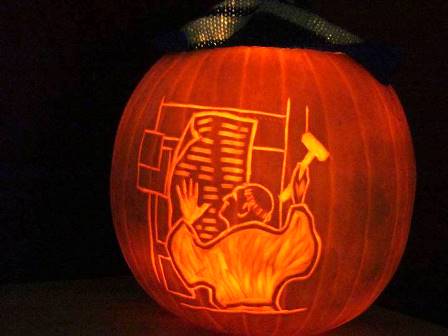If Halloween is used as a time to worship the devil or try to contact the dead, then, yes, it is bad—really bad. There are people who do use it for that purpose, so some churches teach that Christians should not celebrate Halloween—and we certainly should not in that way.
But Halloween is more complicated than that. The name originally included an apostrophe, “Hallowe’en,” because it is an abbreviation of “All Hallowed’s Evening” or the night before All Saints’ Day. Halloween is on October 31, because All Saints’ is November 1. Its focus on the “dark side” of reality was originally preparation for celebrating on the next day all those who walked in God’s light. To acknowledge that evil is real and works against God’s will is not bad for Christians. It is a stiff reminder of why it is so important to cling to Christ for salvation from sin, death and the devil.
At the same time, Halloween today is almost entirely an evening of fun for young children. It betrays little awareness of actual evil, much less celebration of it. (We should perhaps be more concerned that “trick or treat” is culturally sanctioned extortion—except that hardly anyone is denied a treat or actually does any “tricks” anymore.) Even “haunted houses” are all about the thrill of being scared, not honoring the forces of evil.
In the end, a cultural event like Halloween does not pose much threat to Christian faith. If it reminds us of the cosmic battle Christ waged on the cross to save us, it might even be helpful!
Pastor Scott Grorud responds to a theological question each month in our newsletter series “Stump the Pastor.” Have a question that you think will stump the pastor? Email it to Pastor Scott.




